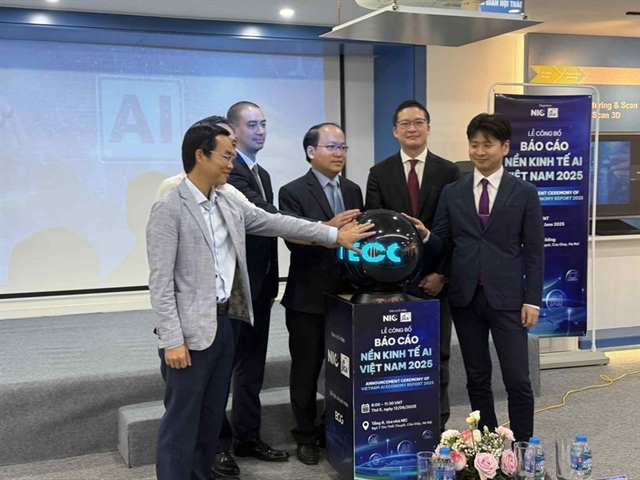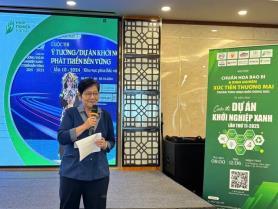The “Việt Nam AI Economy 2025” report released on June 12 reveals that artificial intelligence (AI) is set to become a core driver of growth, contributing an estimated $120–130 billion to Việt Nam’s GDP by 2040, equivalent to 10–12 per cent of the national economy.

HÀ NỘI — Artificial intelligence (AI) is projected to contribute between US$120 billion and $130 billion to Việt Nam’s economy by 2040, becoming a key driver of growth in the digital age.
This forecast was presented at the launch of the report “Việt Nam’s AI Economy 2025”, jointly organised by the National Innovation Centre (NIC) under the Ministry of Planning and Investment, the Ministry of Finance, the Japan International Cooperation Agency (JICA) and the Boston Consulting Group (BCG) on June 12 in Hà Nội.
According to the report, this projected contribution will stem from two main sources: revenue from the consumption of AI-integrated products and services (estimated at $45–55 billion) and cost savings through productivity improvements enabled by AI (estimated at $60–70 billion).
Public administration, education and healthcare are identified as the top three sectors with high potential for AI breakthroughs. In particular, AI could help reduce medical disparities across regions, optimise educational data and enhance the efficiency of public sector management.
NIC Director Vũ Quốc Huy said the report is the first comprehensive document analysing Việt Nam’s AI economy. It outlines the current landscape, development models, application areas and strategic roadmaps, structured around five key pillars: technology, start-up ecosystem, labour, resources and international collaboration.
A representative from BCG highlighted that Việt Nam is emerging as the fastest-growing digital economy in Southeast Asia, with an annual growth rate of over 20 per cent. A structured and robust AI ecosystem will help bolster national competitiveness and assert Việt Nam’s proactive role in the Fourth Industrial Revolution.
To realise this vision, the country is implementing major policy frameworks such as Resolution 57, Resolution 68 and the AI start-up acceleration programme. Over the next few years, NIC and JICA will continue to promote initiatives supporting AI start-ups, developing a specialised workforce and facilitating research partnerships with global tech corporations.
“With a young, tech-savvy workforce and a strong drive for innovation, Việt Nam has every opportunity to become the region’s AI hub,” Huy said. — VNS





